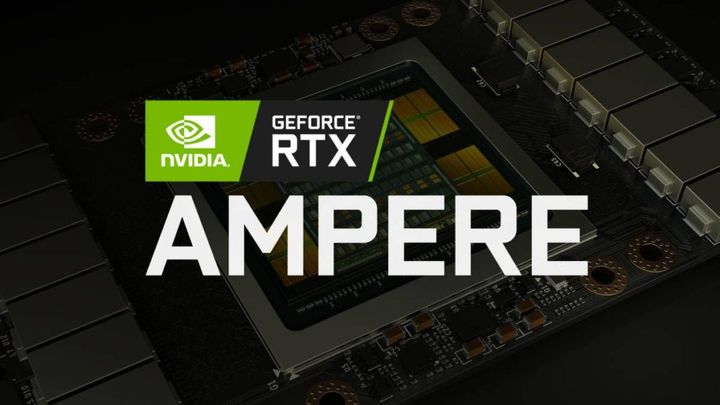All Nvidia Ampere GPUs Will Support Ray Tracing
There have been further leaks concerning new Nvidia graphics cards, based on the Ampere architecture. According to these reports, all GPUs in the series are expected to offer hardware ray tracing acceleration. Support for this technology will also be significantly improved over the Turing line.

IN A NUTSHELL:
- Ampere GPUs are likely to be developed in Samsung's 10nm lithography;
- All GPUs in this series will support ray tracing;
- Top next-gen GeForce models can be up to 40% faster than the RTX 2080 Ti.
There is a lot of new information on the next generation of Nvidia graphics cards based on the Ampere architecture. It seems that, contrary to previous rumors, they will be based on Samsung's 10 nm production process (so called 8LPP, in practice it is a lithography closer to 8 nm), and not 7 nm EUV (Extreme Ultraviolet Litography) of the same company or 7 nm from TSMC (via Wccftech).
The chipsets are to offer solid performance (the difference between the top Ampere GPU and GeForce RTX 2080 Ti is to be up to 40%). In addition to greater ray tracing and shading capabilities, we can expect major improvements in ray tracing and Tensor core handling - moreover, Nvidia is said to be focusing on these aspects. It is worth noting that hardware acceleration of ray tracing is to be available in all next-gen chipsets.
Interestingly, it is possible that only GPUs based on the strongest chipset - GA102 - will support SLI.
According to earlier information, TSMC will produce most of the Nvidia graphics cards manufactured in 7nm lithography. However, it can't be ruled out that this refers to the so-called HPC chips (models dedicated for specialist use, e.g. graphic designers, about which we wrote recently). If we believe the current rumors, the next GeForce series GPUs - designed for gamers - will be products manufactured in other factories and based on a different production process.
According to recent reports, the premiere of Ampere chipsets may take place in the fourth quarter of this year. Unfortunately, it cannot be ruled out that there will be delays - Nvidia was forced to cancel their annual GTC conference due to coronavirus and will limit itself to press releases (it was initially planned to replace the event with an online event, but its preparation also proved to be too much of a threat to workers' health).
- The Elder Scrolls 6 finally gets a release year? Fans believe Skyrim's latest trailer has a valuable clue
- Baldur's Gate 3 publisher explains confusion with Divinity: Original Sin 3. We know what Larian is definitely not working on
- PS Plus: Two more bonus games for December 2025 have been announced. One of them is Assassin's Creed: Mirage
0
Latest News
- This is expected to be the biggest year in the company's history. Blizzard prepares an offensive that will overshadow previous years
- Bethesda envied CD Projekt RED? Starfield may undergo a Cyberpunk 2077-style metamorphosis
- Season 2 has just started, and Todd Howard is already writing the script for the third one. Fallout 5 will be changed by the TV show
- 5 games to grab on Amazon Prime Gaming. Among them, a collection of RPG classics
- My experience attending the 2025 Game Awards, and why I loved it

